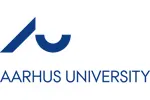

| The award | How you will study | Study duration | Course start | Domestic course fees | International course fees |
|---|---|---|---|---|---|
| MSc | Full-time | 4 semester | September | EUR 4500 per year | EUR 0 per year |
The Erasmus Mundus International Master's in Soils and Global Change (IMSOGLO) offers you a unique international educational experience with a focused curriculum on soils and global change by bringing together the expertise of research groups at four renowned EU universities.
The programme has been granted EU's prestigious Erasmus Mundus label. It is offered jointly by Ghent University (Belgium), University of Natural Resources and Life Sciences (Austria), University of Göttingen (Germany), and Aarhus University (Denmark).
GLOBAL CHANGE AFFECTS THE FUTURE CAPACITY OF SOIL
Increasing population pressure, industrialisation and intensive land use are causing depletion of natural resources and are limiting the performance of land with respect to functions such as biomass production, carbon sequestration and water purification. The cumulative effects of climate change and the abovementioned aspects of global change influence the capacity of soils to regenerate and may even cause soil degradation.
The future capacity of soils to support (human) life is at stake, as recognised by national and international organisations and governmental bodies, such as the EU. Programmes have been developed to protect the environment and to increase ecosystem resilience. Numerous directives have been developed and implemented that build on scientific knowledge about soil response to external pressures.
This scientific knowledge is available in European universities, but rather dispersed due to the specialisation and size of the relevant research groups. In the past this has made it difficult for students to follow a focused curriculum on soils and global change at any individual university.
The alarming effects of global change on soils observed throughout the world emphasize the need to train more personnel worldwide to understand how soils react to global change and to develop prevention and remediation strategies and increase soil resilience. The participating universities in IMSOGLO are very well equipped to give effective and targeted training on soil interactions with global change to an international audience of students.
COMBINE YOUR OWN STUDY PROGRAMME AT DIFFERENT EUROPEAN UNIVERSITIES
As a student on the IMSOGLO programme you will attend several higher education institutes in at least two countries.
All students will study for their first semester at Ghent University. Following this, students will choose between two specialisations.
Students who choose to specialise in 'Soil Biogeochemistry and Global Change' will study in Vienna in their second semester and in Göttingen in their third semester. In their fourth semester, they will write their master's thesis at one of these two universities.
Students who choose to specialise in 'Physical Land Resources and Global Change' will study in Ghent in their second semester and in Aarhus in their third semester. In their fourth semester, they will write their master's thesis at one of these two universities.
All students will have the opportunity to attend summer school in Vienna or to conduct fieldwork in China.
CAREERS
With an International Master of Science in Soils and Global Change you will be trained in soil management in the context of global change with either an agro-ecosystem focus or an integrated land management focus. You will gain extensive knowledge about what it takes to save our soils from degradation, how to make soils resilient to climate change, and how to make soils healthy again.
You will be equipped to follow a variety of career paths as a top-level researcher, an academic, or a policymaker. This means that there are job opportunities in regional environment agencies, municipal nature conservation offices, agricultural advisory services, educational institutions, NGOs concerned with nature and the environment, consulting engineering companies, and EU institutions, ministries and other public authorities.
Research is also an obvious career path. Students can apply for admission to the university's PhD programme following completion of the thesis.
IN THE RANKINGS
Agricultural sciences by subject at Aarhus University rank twenty-second in the world in the 2020 US News Best Global Universities ranking, and in the 2019 National Taiwan University ranking are nineteenth in Agricultural Sciences by subject. Agriculture and Forestry at AU is ranked thirty-fifth in the 2020 QS World University Rankings by subject.
In general, admission to a Master’s degree programme requires successful completion of a relevant and recognised university degree equivalent to a Danish Bachelor’s degree in level and length (180 ECTS). All applications must also fulfil the English language requirements.
Find more information about the admission requirements, application procedure and deadlines at Aarhus University.
In addition, you must meet the specific requirements for the Soils and Global Change programme, which can be found on the Soils and Global Change study programme page.
Below are some suggested courses at other providers that you may also be interested in:
Bachelor of Business Administration BBA
University of Applied Sciences Europe - Amsterdam
Find out moreBachelor of Business Administration and Digital Innovation with Digital Finance and Fintech in Malta BBA, BBA
GBSB Global Business School
Find out moreIf you do not meet the entry requirements for this course then consider one of these postgraduate preparation courses from another institution:
Graduate Diploma of Engineering (Industrial Automation)
Engineering Institute of Technology
Find out moreThere are 56 other courses listed from Aarhus University. A selection of these are displayed below:
Find out more about studying in Denmark